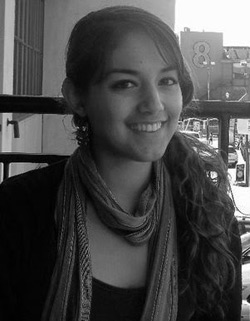A College of Natural Sciences student gets the spotlight during the university's Research Week.
From UT's Know website
Research Week showcases the exciting work of undergraduates across campus and highlights opportunities for students interested in getting involved. Co-sponsored by the Senate of College Councils and the School of Undergraduate Studies, Research Week took place April 16-20 this year. To celebrate undergraduate research and creative activity, the University highlighted five profiles of student researchers. Here is the College of Natural Sciences student who was chosen for her interesting research.
Nadia Khan
Major: Human Biology
Research Topic: Alcohol Modulation on Vanilloid Receptor 1 (TRPV1)
Faculty Supervisor: Dr. R. Adron Harris and Dr. Rebecca J. Howard, Waggoner Center for Alcohol and Addiction Research, College of Natural Sciences
 “Research has given me a deeper understanding and allowed me to appreciate my science on a whole new level.” — Nadia Khan
“Research has given me a deeper understanding and allowed me to appreciate my science on a whole new level.” — Nadia Khan
Briefly describe your research project.
I am attempting to characterize how alcohol modulates the activity of vanilloid receptor 1 (TRPV1) as a direct pharmacological target in the nervous system. TRPV1 is an ion channel responsible for transducing chemical and thermal stimuli such as protons or heat into neurological responses like pain. My hypothesis is alcohol affects TRPV1 similar to that seen in ligand-gated ion channels — an increasingly potent modulation with increasing chain lengths of alcohols up to a certain “cut-off.” Discovering this “cut-off” will allow me to further define the molecular dimensions of the alcohol-binding pocket.
What was the most rewarding part of your research experience?
Receiving the opportunity to attend the Society for Neuroscience conference in Washington, D.C., this past November. I’ve never seen so many brilliant minds in one place — and so passionate about their work! Also, through a recommendation from my research educator in the Freshman Research Initiative, I was able to receive a fellowship to research at Stanford University for one summer.
What surprised you during the research process?
How addicting the whole process can become. I equate it to watching a new TV show. In the beginning, everything is slow-moving as you learn the names of all the characters, their personalities and — most of all — their relationships with each other. However, you eventually get to a point where your curiosity takes over and your desire to know more and more consumes you. Research is kind of like that. The possibility of discovery becomes endless!
How has participating in research affected your undergraduate experience?
Research has really helped me to place what I learn in my undergraduate career into perspective. Learning about things such as PCR, gel electrophoresis or microarrays from a textbook can seem so abstract and even hard to grasp at first. However, when you actually perform such techniques in the lab, a whole new understanding of cellular processes comes to light. You begin to understand the reason why you add enzyme A, or what those funny bands on a gel really mean. Research has given me a deeper understanding and allowed me to appreciate my science on a whole new level.
How do you think getting involved in research will be helpful to you in the future?
In more ways than I can count! Because of the opportunity I received to attend the Society for Neuroscience conference, I was able to make connections to find a job as a research scientist after graduation. Moreover, I was able to make future connections for graduate school when I intend to apply.
What advice would you give incoming students about getting involved in research?
Become involved in the Freshman Research Initiative (FRI). This was the biggest jumping off point for me into my research career. I was able to take every technique learned in the program and apply it to every research experience I ever had, and sometimes even some of my schoolwork. If you aren’t in FRI or if it’s too late for you to apply, don’t be afraid to explore the research on campus. UT is a great place with hundreds of professors doing earth-shattering science every day. Don’t be afraid to contact them and let them know you are interested! If you never try, you will never know.


















Comments